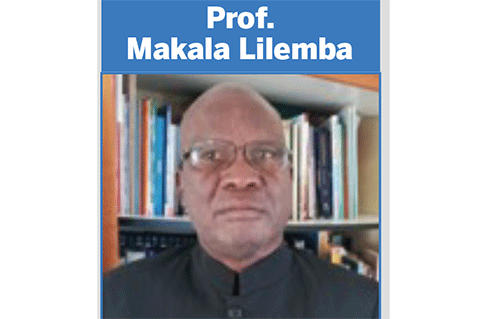According to the Merriam-Webster dictionary, nationalism is defined as loyalty and devotion to a nation, especially a sense of national consciousness, exalting one nation above all others, and placing primary emphasis on the promotion of its culture and interests as opposed to those of other nations or supranational groups. Britannica simply puts nationalism as an ideology that emphasises loyalty, devotion or allegiance to a nation or nation-state, and holds that such obligations outweigh other individual or group interests. In Africa, the ancient nationalistic tendencies were aroused and reactivated by colonialism, as the early nationalists felt the need to unite all ethnic groups and fight for independence. After gaining independence, many political leaders – out of greed and opportunism -failed to build the nation as envisioned in their aspirations. In his book, Not Yet Uhuru, Oginga Odinga (1968) said after the Kenyan independence and being the vice president, Jomo Kenyatta felt betrayed by his friends and suffered years of propaganda and accusations of being a communist for advocating a fair and equal system of sharing resources.
He was accurate in his characterisation of the emerging class of the political elite in Kenya, a trend which unfortunately spread like wildfire to many African countries. He further underscored that the elite’s interpretation of independence was “that they should move into the jobs and privileges previously held by the White settlers”, and he blamed them for the “prostitution” of Uhuru, which is independence. These sentiments drew parallels to many African countries, in which the political noble, nationalistic ideas have been left out and overtaken by greed and opportunistic legislators. Instead of rallying for unity of purpose, the early political leaders relaxed and ignored their responsibilities towards the newly-formed nation. According to Ombaka (2008), as the colonialists departed, they were replaced by Africans,
and it soon became apparent that the new African elite found it difficult to act impartially as they had vested interests
in the same resources whose sharing they were to preside over. This is because colonial politics helped to create the ethnic social organisations that were dominant in most African countries at independence. Given the uneven patterns of colonial economic development and educational development, this abrupt change in the
ways of conducting the affairs of the state meant that certain tribes were more likely to occupy these powerful positions in the new government than
others. Namibia, as a new nation, fell into a similar ethnic pit to other African countries in many ways. The country has failed to use the available and valuable national symbols adopted after
independence to enhance nationalism.
Many Namibians cannot sing the national anthem, and the symbol remains in English, making it difficult for the local communities to understand and comprehend its words.
In many countries, national anthems
portray and carry with them a sense of nationalism, and are compulsory at schools and during ceremonial and national occasions. Many Namibians can fail the test on the colours depicted on the flag, and do not know that leaning against the flagpole is prohibited by law, unless one is being hounded by a death-threatening situation. Another sticking point is the language prerequisite for one to get a job or promotion in other regions. This policy in education means that one should be confined to his or her area of origin. Namibians fought Bantustans and their apartheid ethnic system, and unfortunately, it is being reintroduced in a subtle fashion. As Ombaka (2008) further underscores, ethnicity is an ideology of modern times often used by the political elite to mobilise ethnic populations to achieve narrow elite objectives. Its crafting is always the work of the educated elite who seek to seize an advantage over rival elite from other ethnic groups in a competition for modernity. In renaming place names and streets, the nationalistic intention has been compromised in some places and resorted to local personalities. One cannot come across a Mandume Ndemufayo Street in the southern part of this country, neither can one dream of bumping into an Induna Masida Street anywhere in Namibia. Of late in Katima Mulilo town, the authorities went to the extent of removing the gazetted name plate of fearless freedom fighter Judea Lyabboloma, and replaced it with a certain Dr. Mwiya, whose contribution to the liberation struggle and national matters might be known only by few people. In a similar ethnic vein, after the demise of Alex Mushe, the first rector of the then-Caprivi College of Education, arrangements were made to name one hall after him, but the efforts were mysteriously hijacked and dwindled. The country has in many cases remained Bantustanic, and little efforts have been
made to integrate and make it more nationalistic than during the colonial
period. The current initiatives by the Ministry of Information and Communication Technology to spearhead the programme of reviving the importance and knowledge
of the national symbols is a welcome
move, which should have been started immediately after independence. But as the Subiya saying goes, “buche buche, unfuzu aba luti eLyambezi,” meaning the tortoise managed to cross the Lyambezi Lake, which happens to be a long stretch of water. Maybe an equivalent in Afrikaans is that, “die laaste koei kom ook in die kraal.” The task of building a nation now is left in the hands of the youth, in which case “the beautiful ones are not yet born,” as Ayi Kwei Armah puts it.
* Prof. Makala Lilemba is an academician, administrator, author, diplomat, motivated leader, researcher and scholar, who served as a Visiting Research Scholar and lecturer at the University of Barotseland, Mongu, Zambia. He holds a Bachelor of Arts, a University Education Diploma from the University of the North (now Limpopo University) in South Africa, a Master of Education degree from the University of Manchester, United Kingdom, and a Doctor of Philosophy in Education from the University of Namibia.


